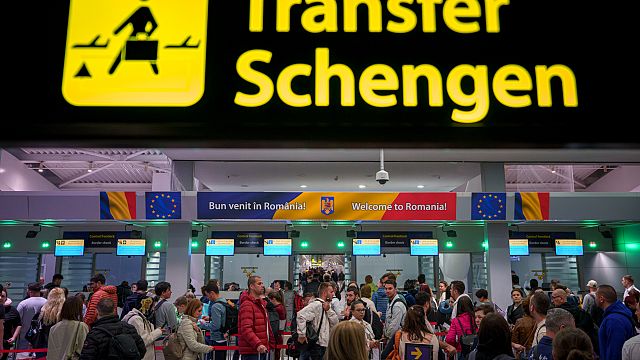For many Africans yearning to explore Europe for various reasons like tourism, education, or family visits, obtaining a Schengen visa has become an increasingly daunting task. Recent data from the European Commission paints a concerning picture: African applicants are encountering some of the highest rejection rates globally. In the year 2024, a significant number of African travelers faced disappointment as rejection rates spiked across the continent. Countries such as Comoros, Guinea-Bissau, Senegal, Nigeria, and Ghana experienced rejection rates ranging from 45% to 63%, placing them among the hardest-hit nations worldwide.
The Schengen zone, comprising 29 European countries like France, Germany, and Spain, received over 11.7 million short-stay visa applications in the same year. Despite a 13.6% increase in global demand, many African applicants found themselves locked out. Each Schengen visa application incurs a €90 fee (approximately $100), which is non-refundable, even in cases of rejection. This resulted in Africans losing an estimated €60 million ($67.5 million) in 2024 alone due to rejected applications, funds that could have been spent on travel experiences instead of bureaucratic hurdles.
Marta Foresti, the founder of the UK-based LAGO Collective, aptly points out the irony that the poorest nations are essentially paying the wealthiest countries to keep them out. The data from the European Commission highlights the disproportionate impact of rejections, with Comoros leading at a staggering 62.8% rejection rate, followed closely by Guinea-Bissau, Senegal, Nigeria, and Ghana. These rejection rates are significantly higher than the global average of around 18%, underscoring the challenges faced by African travelers.
European embassies claim that visa applications are evaluated based on individual merits such as the purpose of the visit, financial stability, and the likelihood of the applicant returning home. However, critics argue that the process lacks transparency and accountability, reflecting broader issues of inequality, suspicion, and systemic biases. Many applicants attest to submitting all required documents diligently, only to receive ambiguous denials without clear feedback. Some individuals are repeatedly denied visas for legitimate reasons like attending conferences or family gatherings, further exacerbating frustrations.
As African nations forge partnerships with Europe in various sectors, the existing barriers to movement clash with the rhetoric of collaboration. Conversely, European citizens face minimal hindrances when traveling within Africa, raising pertinent questions about equity, reciprocity, and mutual respect. In a world where mobility often signifies opportunity, Africans find themselves excluded not due to lack of preparation or intent but due to systemic obstacles seemingly stacked against them.
Calls for visa reforms and enhanced transparency are growing louder as the hope remains that African voices will no longer shoulder the heaviest burdens for minimal outcomes. The conversation around Schengen visa rejections shines a light on the deeper issues of fairness, accessibility, and the need for a more equitable global mobility landscape. As the world moves towards increased interconnectedness, overcoming these barriers becomes crucial to fostering genuine collaboration and shared prosperity.

